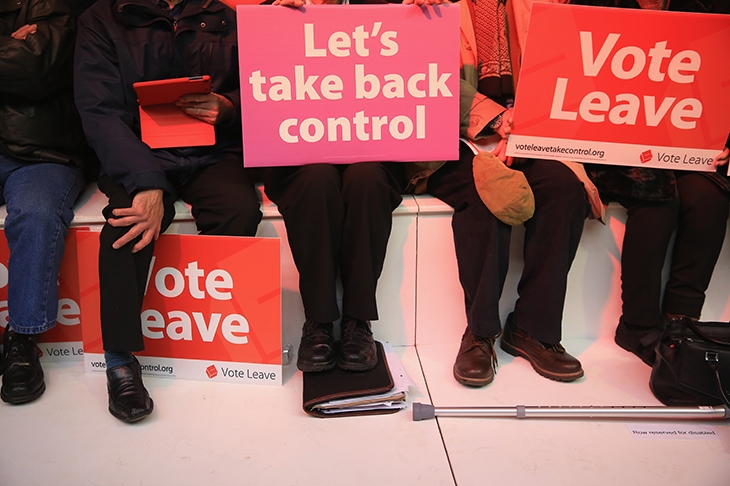People sometimes ask what slogan could have swayed the Brexit vote: the opposite of the touchstone phrase ‘Take back control’.
There are many suggestions, my own being: ‘Don’t leave — it’s what the French want us to do.’ No Europhile committee would ever have approved a jingoistic slogan, of course; yet the feelings of committed Europeans are irrelevant. Those people will vote Remain in any case. Instead you need to reach the ambivalent, sceptical or mildly hostile.
This raises the central question about communication: do you want to feel good about yourself, or do you want to change the minds of others?
The art of sloganeering can serve two powerful ends — persuasion or cementing tribal allegiance. Usually you can’t do both. Since tribal solidarity was critical for most of our evolutionary history (‘slogan’ derives from a Gaelic word meaning ‘war cry’) we may be unduly drawn to arguments which are good for rallying the troops but useless at growing wider support. Neil Kinnock’s ‘We’re all right’ Welsh hwyl at the 1992 Sheffield Rally was a masterclass in getting this wrong: effective in the hall, disastrous on TV.
A casual analysis of the chants of football supporters shows that they are not what you’d call persuasive. When Glasgow Rangers fans in 1980 sang ‘Would you like a chicken supper, Bobby Sands?’ to the tune of ‘She’ll Be Coming Round The Mountain’, they were not reaching out to Celtic fans in a bid to forge a wider ecumenical consensus. Millwall fans, too, have clearly given up on attempts to widen their franchise: ‘No one likes us — we don’t care.’
Advertising seldom communicates in this way. Headlines such as ‘Range Rover Vogue — for people too tasteful to buy a Porsche Cayenne’ or ‘Enjoy your Waitrose shop, you overpaid sucker’ are rare. Range Rover or Aldi devotees may rejoice at such messages, but they are not who you are trying to reach.
There is another reason advertisers don’t draw inspiration from the terraces, though. Football fans only care about the next 90 minutes. Deeper behavioural change is slow, uneven and proceeds via networks over decades. Liberal campaigns might be more successful if they learned to be less strident.
The recent trend for veganism seems to have emerged without anyone shouting at anyone else. It isn’t the virtue we mind, it’s the signalling. The strength of persuasion as a political tool over legislation or economic intervention is that it is slow. But by being slow it allows us to change at our own pace and for our own reasons.
The failing of the whole globalisation project lay in its timing. Centralised economic and legal changes outpaced the normal rate of human acquiescence — hence the backlash. Top-down ideas were imposed simultaneously at scale on an organic system which can only adapt gradually and at varying speeds. None of these ideas (the euro, freedom of movement or, larger still, admitting China to the WTO) were wholly without merit. But to impose them simultaneously for the purposes of intellectual neatness was an act of insanity.
Strangely the ERG is now making the same mistake in reverse. In some kind of weird Stockholm syndrome adoption of continental dirigiste thinking, it seems to think a treaty has to be perfect before you sign it — a view entirely at odds with the Anglo-Saxon empiricist tradition where the real negotiation starts after you sign, and if something doesn’t work you simply ignore it.
Theresa May should borrow from my suggested approach and tell them to stop being so French.







Comments